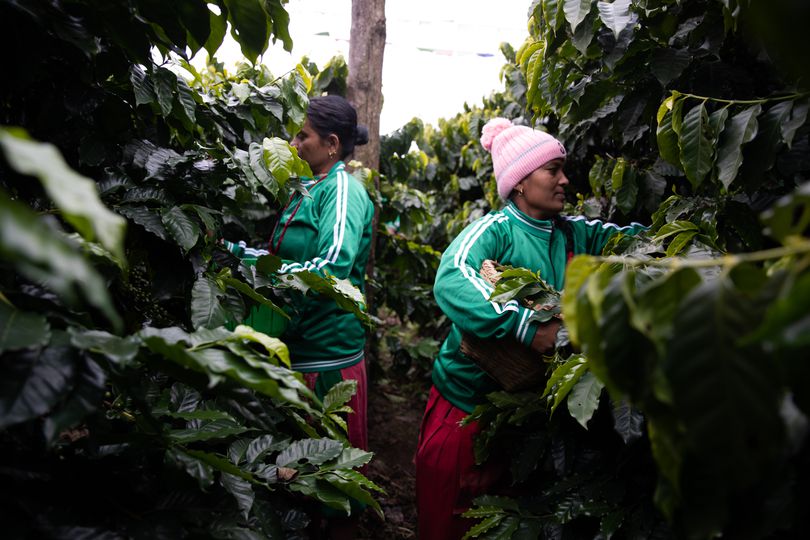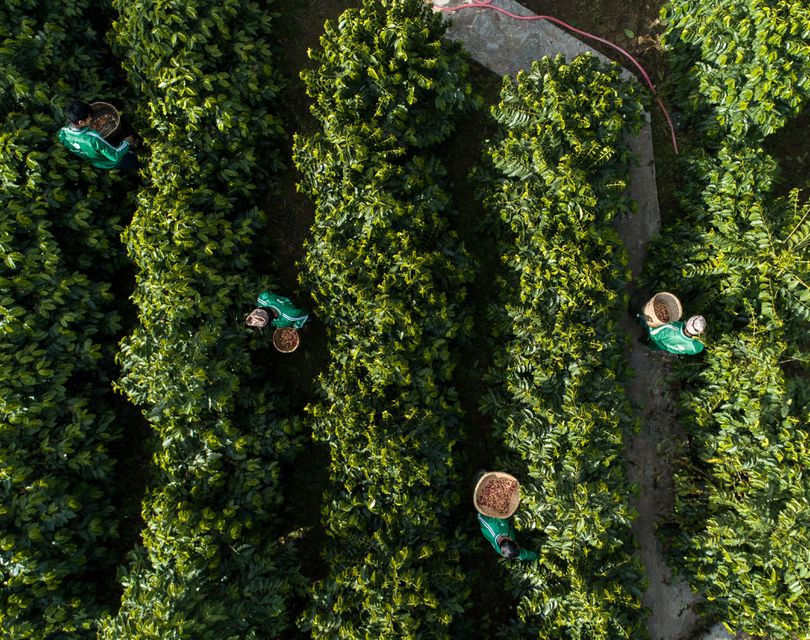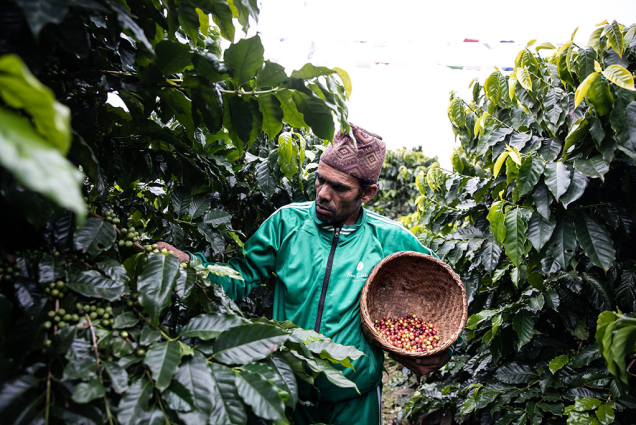Planting
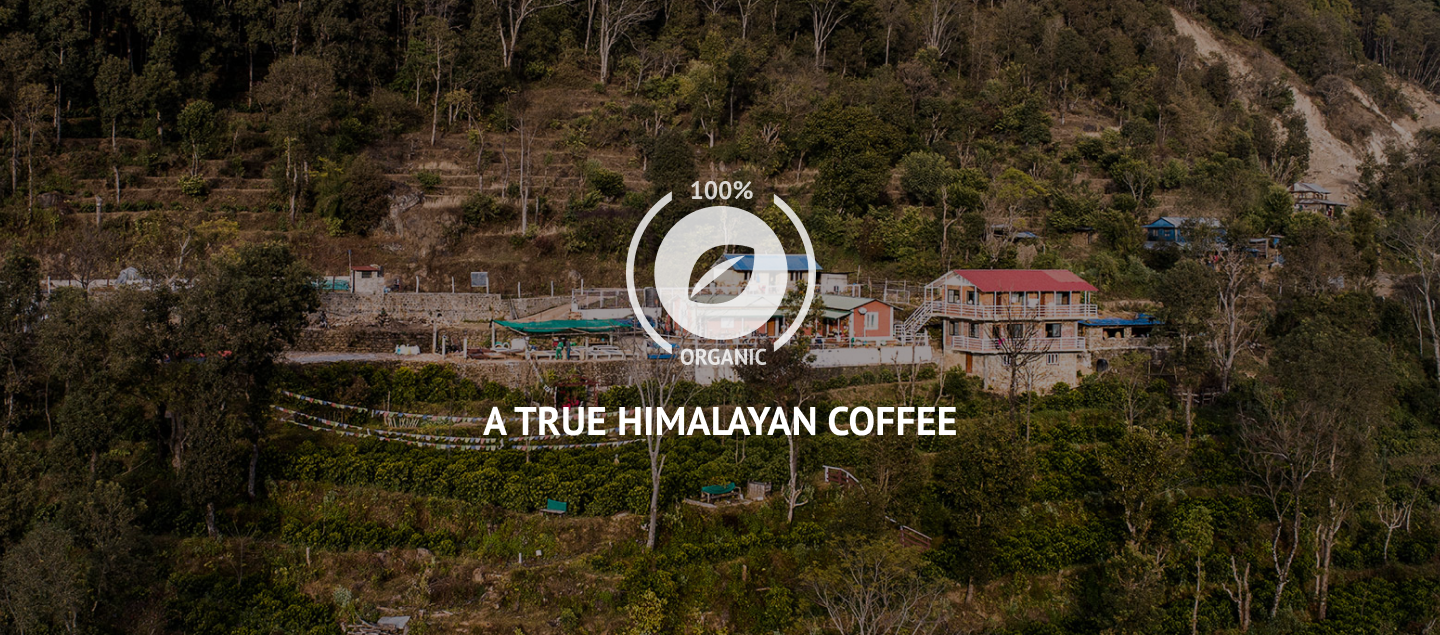
Nuwakot district is located in the central part of Nepal and covers a mountainous area of 1041 sq. km. With a population of approximately 200000 people, it is renowned for its beautiful terraced rice fields and is one of the most important agricultural districts in the country. The climate is suitable for agriculture and the soil is fertile, making Nuwakot an ideal place to farm our coffee.
This elevation contributes to the intense aromatic characteristics of the coffee grown in Nuwakot. The minerals-enriched soil provides the support and nourishment required by coffee plants. The region comprises several microclimates, different altitudes, and topographies, all of which enable the production of exceptional coffee.
100% Organic Certified







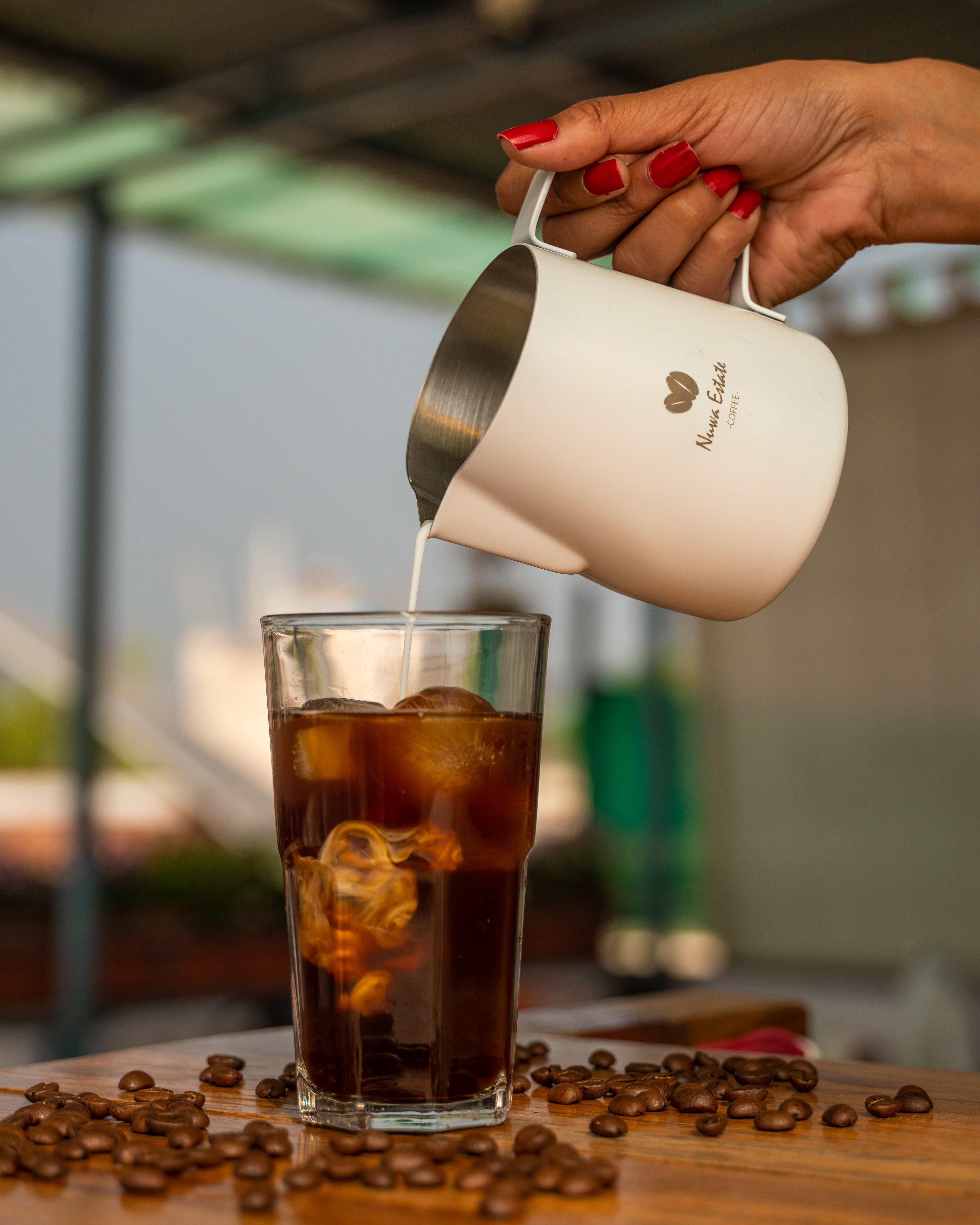
OUR STORY
The year was 2007 - when a tight-knit family with a penchant for good coffee and the zeal to generate income for the local community, committed to producing and exporting high-grade, luxury coffee. It all started when unbeknownst to Mr. Tashi Wangchuk Tenzing, who was scaling Mt Everest for the third time, his wife Mrs. Bandi Nima Sherpa Tenzing visited Nuwakot district. Mrs. Tenzing looked over the serene hills, dreaming of the impact she could have in the lives of the community, and the example she could set in her community as a female entrepreneur, a feat that was a rare sight in those days. Without the infrastructure of roads and irrigation in place, it was important to scope the area for the feasibility of this project, but Mrs. Tenzing had always been a dreamer and a doer. Her vision to succeed was unparalleled, and the locals even followed her 4-hour tour of the area, wondering what it was she was about to attempt to do.
In the end, it wasn’t the area’s obvious potential, temperature, or productivity that sealed the deal. Mrs. Tenzing set things in motion when she realized the extent of human trafficking and emigration in this area. Therefore, Nuwa is proud to have always been a socially responsible business- one that was established with core values and a larger mission to serve- all derived from Mrs. Tenzing’s vision on a bright Sunday morning in 2007.
It all started with yielding and peddling raw coffee, but as the market for quality coffee grew, so did the business. Finally, an addition of a roaster made fresh, quality, perfectly roasted coffee possible for the masses.
Today, we only sell the best and compost the rest.
OUR ESTATE
Our estate has borne witness to Nuwakot since the days of dirt roads, terrain farming, and only a few houses that made up a village. Today, the area is ripe with tourists and the economy grows every day. Our estate is located at an elevation ranging from 1200 meters up to 1500 meters above sea level. Coffee plants at this altitude are exposed to less oxygen, slowing down growth and producing a more concentrated flavor. They have a distinct flavor profile and a signature aroma, also owing to the mineral-enriched soil straight from the Himalayas.The estate has planted more than 70000 coffee plants among fruit-bearing trees such as avocado, banana, hazelnut, macadamia nut, and South Asian spices- modeling after agroforestry and ensuring water retention in the estate. The trees act as barriers and selectively filter the sun’s rays.
The weather at the estate is always pleasant- a state of perpetual spring, and our beans carry with them stories of the land, and of the people who have cultivated the beans for decade
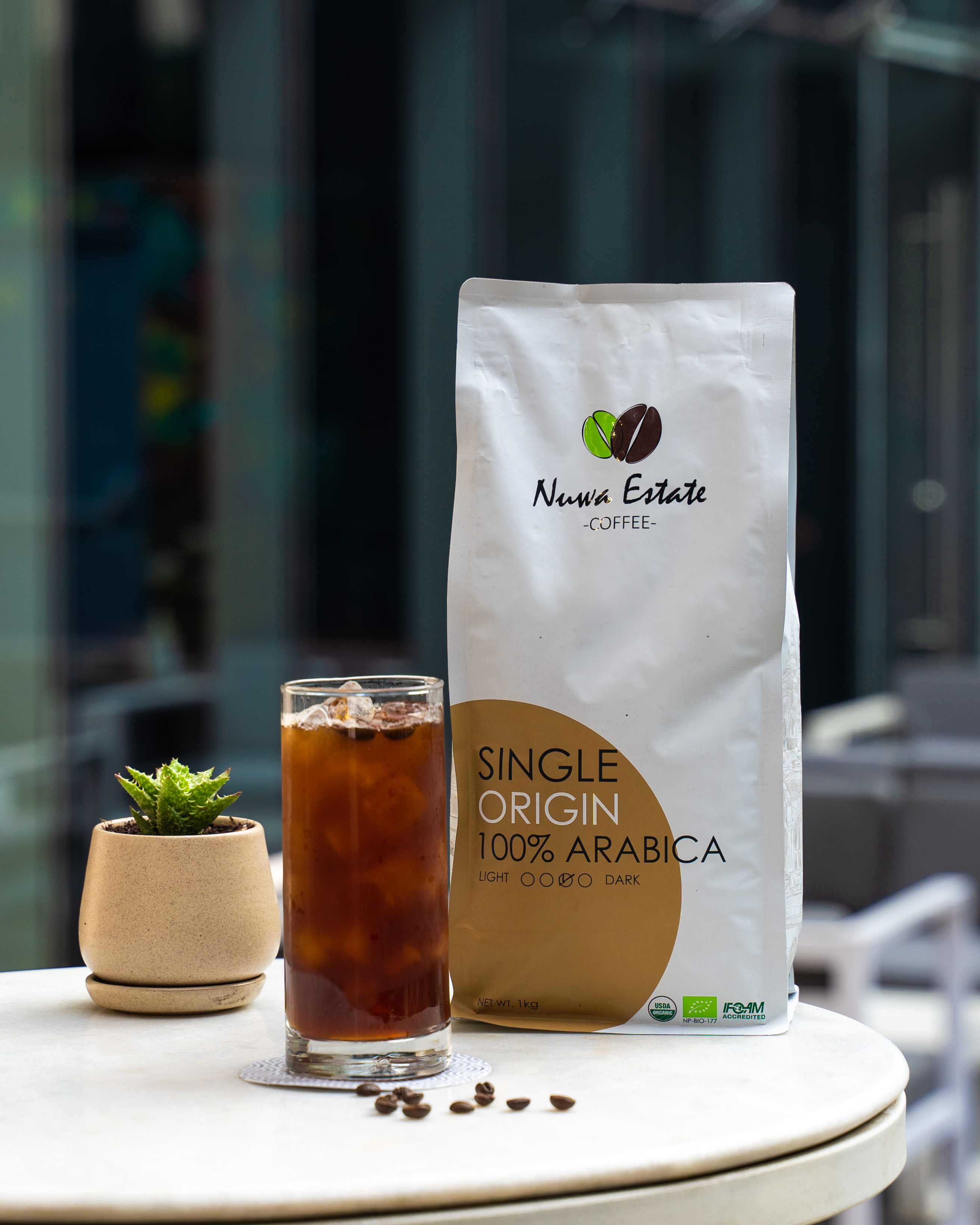

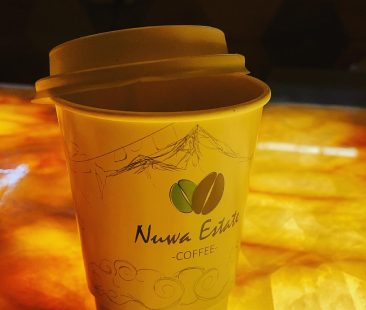
OUR COFFEE
Nuwa Coffee is world-renowned for our 100% Arabica coffee. Of all coffee plants in the world, Arabica is the most delicate coffee plant and therefore it grows very well in higher altitudes. It delivers a rich and dark blend, with more flavor, nuances, and less acidity and bitterness. That’s why Arabica is one of the most popular coffee beans in the world. However, after years of deliberation and moderations of the planting, harvesting, and roasting of our coffee, Nuwa’s blend is quite literally heavenly, in both taste and altitude. Working directly with farmers enables us to create a high-yielding and sustainable source of income for our farmers. Each cherry is handled with the highest regard and roasted in smaller batches to bring out the intricacy and complexity of its flavor. A coffee amateur and connoisseur would be able pick up on hints of citric and floral notes in our blend- these are a few reasons why Nuwa Coffee is favored by international green coffee importers and artisanal roasteries across the globe.
Our blend has been certified ‘organic’ by the International Federation of Organic Agriculture Movements (IFOAM) and Biocert International Pvt. Ltd.
Due to relentless demand from our customers and visitors to provide them with complete coffee solutions such as café related machineries, services, training and various other aspects concerning café setups. We have been working closely with “The Roots Trading”. They have always been able to fulfill all our customer requirements and requests.
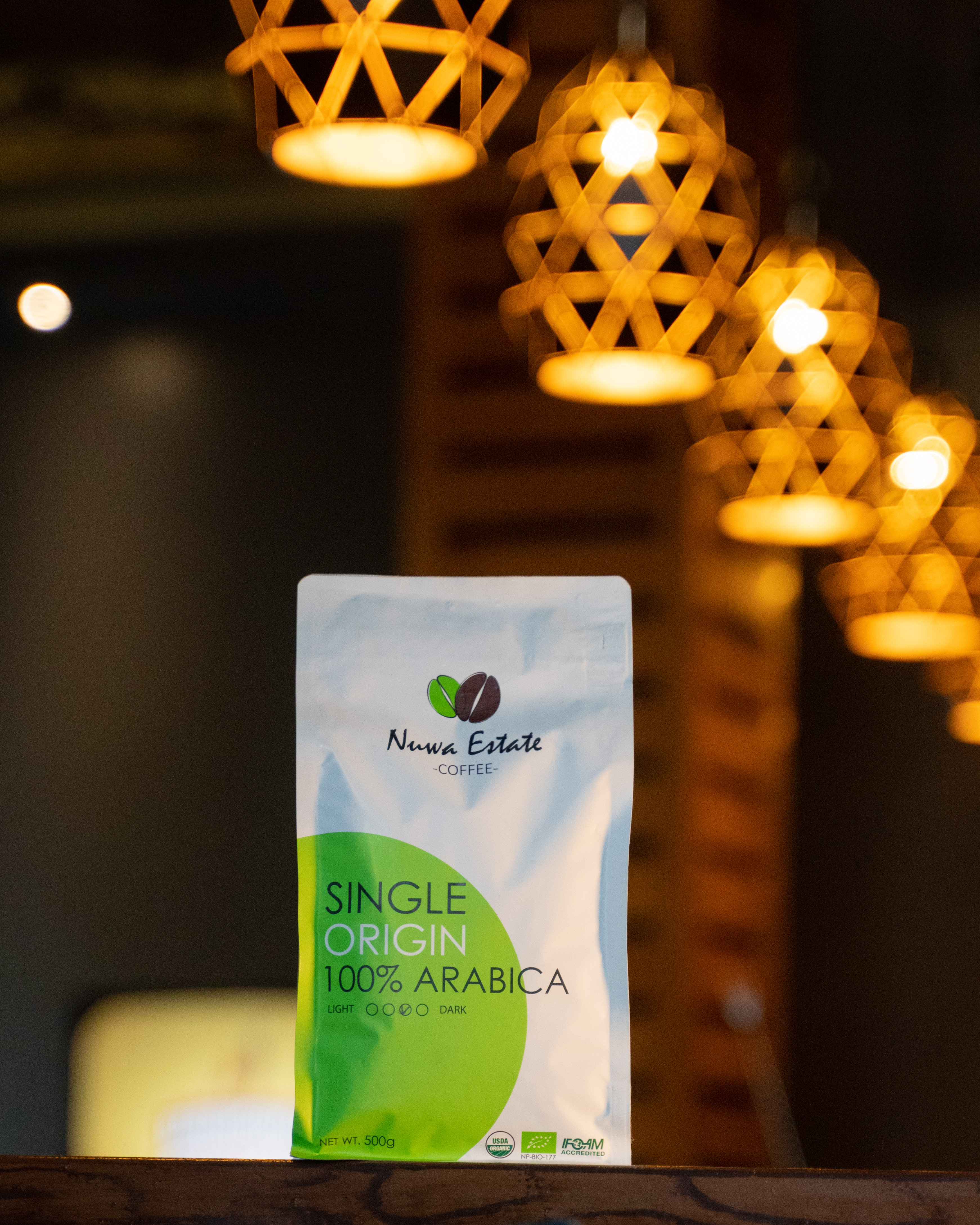
OUR PROCESS
EVERY STEP WELL TAKEN CARE OF TO
BRING OUT THE BEST RESULTS
BRING OUT THE BEST RESULTS
Our coffee plants once ready are handpicked by a host of specialized coffee handlers and go through the following process:
Inspection
To be certain of our yield, the cherries are inspected for defects or green beans and then put through a floatation process. Immature, dry, and overripe cherries float in water, and quality ripe cherries sink. After separating the two, the cherries are processed immediately to avoid deterioration of the cherries.
Processing
Once the inspection is complete, the outer skin of the cherry is removed, revealing the pulpy flesh underneath. This flesh and the fruit skin are collectively called the pulp after their removal in a process called “pulping” the mucilaginous layer is then separated by “fermentation.”
Drying & Milling
The coffee beans are then pre-dried to remove surface water, when dried and ready for milling the coffee beans are referred to as Parchment Coffee. Beneath the parchment skin and covering there is a thin membrane called the silver skin, in order to remove this layer, the beans are put though the “hulling” process, subsequently they are then titled as Green Coffee.
Inspection
To be certain of our yield, the cherries are inspected for defects or green beans and then put through a floatation process. Immature, dry, and overripe cherries float in water, and quality ripe cherries sink. After separating the two, the cherries are processed immediately to avoid deterioration of the cherries.
Processing
Once the inspection is complete, the outer skin of the cherry is removed, revealing the pulpy flesh underneath. This flesh and the fruit skin are collectively called the pulp after their removal in a process called “pulping” the mucilaginous layer is then separated by “fermentation.”
Drying & Milling
The coffee beans are then pre-dried to remove surface water, when dried and ready for milling the coffee beans are referred to as Parchment Coffee. Beneath the parchment skin and covering there is a thin membrane called the silver skin, in order to remove this layer, the beans are put though the “hulling” process, subsequently they are then titled as Green Coffee.


Harvesting

Cherry Processing

Coffee Drying

Coffee Tasting

Coffee Roasting

Coffee Grinding

Packaging
